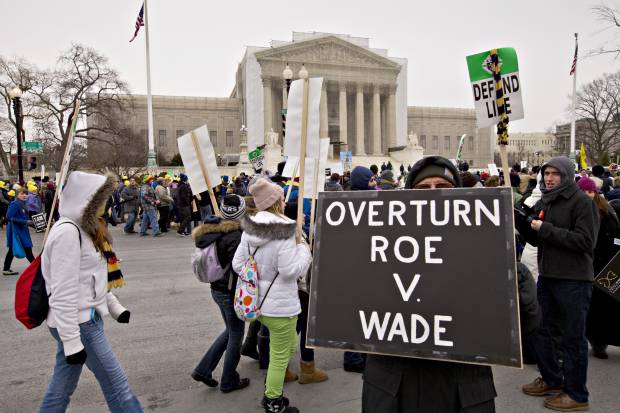The availability of safe, legal abortion and affordable, reliable birth control is really good for women. Being able to decide if and when to have a child (or more children) improves women’s educational outcomes, our career prospects, our health, the health of our relationships, the well-being of our children, our lifetime earnings, our sex lives. Women benefit tremendously from reproductive freedom, and so does society.
Here’s how Katha Pollitt put it in her book “Pro: Reclaiming Abortion Rights”:
Society benefits when women can commit to education and work and dreams without having at the back of their mind that maybe it’s all provisional, because at any moment an accidental pregnancy could derail them for life.
When you talk about how essential birth control and abortion rights have been to women’s progress, another thing becomes clear: The current assault on access is actually a referendum on women’s progress. This isn’t exactly breaking news, either. Plenty of people who oppose reproductive freedom are pretty clear about why they feel this way.
Here’s what one protester outside a Planned Parenthood in Boston, Massachusetts told Cosmopolitan’s Jill Filipovic about his view of a woman’s true purpose: “The fullness of being a woman is being a mother.” Here’s what another had to say: “Girls that want to have their careers, their education, they want to have this and that, the latest fashions, or go to this, or get a car, and they also want to have children? That’s a pretty hard thing to do. Usually it’s the children come first — that’s how society has changed. Children have become a throwaway.”
And while we’re at it, here’s what the Freedom Law Center, a group the filed a court brief in support of Hobby Lobby’s challenge to the Affordable Care Act, argued about birth control’s impact on society: “[T]he widespread use of contraceptives has indeed harmed women physically, emotionally, morally, and spiritually — and has, in many respects, reduced her to the ‘mere instrument for the satisfaction of [man’s] own desires.’ Consequently, the promotion of contraceptive services — the very goal of the challenged mandate — harms not only women, but it harms society in general by ‘open[ing] wide the way for marital infidelity and a general lowering of moral standards.’”
And while we’re still at it, here’s what Rick Santorum, a guy who still thinks he is a viable candidate for president, thinks about birth control: “It’s a license to do things in a sexual realm that is counter to how things are supposed to be.”
As Filipovic noted in her report on the Boston clinic protesters, everyone seems to agree that abortion and birth control ushered in massive social and political changes. The disagreement comes when you ask whether those changes are good or bad. “Both pro-choice feminists and pro-life conservatives point to the birth control pill and, later, legal abortion, as ushering in enormous social shifts — which one group says led to increased equality, the other to the destruction of the traditional family,” Filipovic writes.
You can watch a group of protesters explain their views about women’s “place” in society in their own words here:

